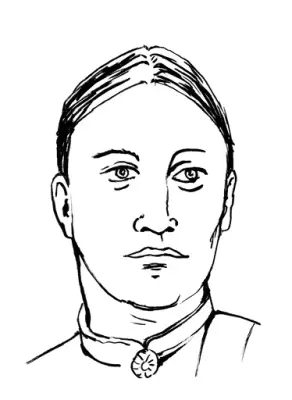Abortion in Sweden
The Abortion Act of 1974 grants women in Sweden the right to abortion up to week 18 in the pregnancy without having to provide any justification. After 18 weeks have passed, the pregnant woman must send an application to the National Board of Health and Welfare. An application must be made, and the woman assessed by both a specialized doctor and a counsellor, before the legal council can allow for an abortion. These abortions may be permitted in cases involving drug or alcohol use, if the woman is mentally ill, if the pregnancy will put the woman in a difficult life situation, or if the fetus has severe and potentially fatal abnormalities. Abortions are outlawed if the fetus is assumed to be viable, usually around 22 weeks. In 2018, 370 abortions, or about 1% of all abortions carried out, took place after week 18. In a Nordic context, Sweden is considered to have the most liberal abortion law. Although the abortion rate is the highest in the Nordic countries, the abortion numbers in Sweden are stable and over 84% of abortions are carried out before week 9.
Historical overview
The Swedish abortion law has undergone major changes over the last 300 years. The Civil Code of 1734 outlawed abortion in all cases, punishing women who procured an abortion with the death penalty. In 1864 the law was revised, and the death penalty was replaced with penal labor for two to six years, both for the woman seeking to terminate a pregnancy and the abortionist.
For the first time, abortion was legalized under certain circumstances in 1938. Women could get an abortion on very limited medical grounds concerning herself or the fetus, or if the pregnancy was the result of rape or incest. This could only happen after evaluation by a medical council that would grant the termination. Right after World War II, in 1946, socio-medical reasons were added to the list of grounds for legal abortions, which meant that abortion was permitted if the woman’s physical or mental health would be worsened by having a child. Abortion was not fully legalized in Sweden, and for the next 30 years, many women traveled to countries such as Poland, where there were more liberal abortions laws and practices in place. In 1965, what would become known as the “Poland affair” received ample attention in Sweden. Journalist Hans Nestius was under investigation for aiding Swedish women to obtain abortions in Poland. The attention given in the media heated up the debate about abortion access and women’s rights, leading to an inquiry and the complete legalization of abortion in 1974. When the Abortion Act came into effect, abortion on demand was available until week 12, and between week 12 and 18 after an evaluation by a counsellor. This requirement was abolished in 1995. The current legislation thus reads: “If a woman requests termination of her pregnancy, an abortion may be performed if the procedure is performed before the end of the eighteenth week of pregnancy and it may not be assumed that it will entail serious danger to the woman’s life or health on account of her having an illness.” The latest amendment came in 2008, declaring that non-Swedish citizens, including asylum seekers, non-permanent nationals and other foreign nationals, have the right to procure an abortion in Sweden.
Situation 2022
Contrary to many other countries, Sweden does not have a clause for conscientious objection in their abortion law. This means that health care providers cannot abstain from providing health services, such as abortions, that goes against their personal or religious beliefs. Hence, midwives, gynecologists and other qualified health care personnel who refuse to carry out abortions in their work can be denied employment. Ellinor Grimmark was working as a midwife in the Jönköping region but decided to sue the health authorities in 2014 after they refused to employ Grimmark as she refused to provide abortion services and prescribe contraceptives due to her beliefs. Her lawsuit reached the district court, where she lost, and after she appealed, the Swedish Labor court. Grimmark lost all her attempts at justification in the Swedish court system and decided to try her case against the Swedish state in the European Court of Human Rights. Grimmark lost here as well in 2020, and her case was permanently closed in October 2021, as her motion to appeal was denied. As she has been denied employment in Sweden, Grimmark works in Norway, where she can be employed as a midwife and abstain from providing services as a conscientious objector.
Written by: Tilla Solli for The Women's Museum of Norway
Sources
1177 Vårdguiden. Abort. Retrieved April 7, 2022, from https://www.1177.se/barn--gravid/graviditet/avbruten-graviditet/abort/
Hedén, A. (2021, October 28). Europadomstolen nekar barnmorskan Grimmark resning. SVT Nyheter. Retrieved March 27, 2022, from https://www.svt.se/nyheter/lokalt/jonkoping/europadomstolen-nobbar-barnmorskan-grimmark-igen
NTB. (2021, May 4). Stadig færre tenåringsaborter i Sverige. Vårt Land. Retrieved March 28, 2022, from https://www.vl.no/nyheter/2021/05/04/stadig-faerre-tenaringsaborter-i-sverige/
RFSU. (2020). About Abortion: Fighting for Body Rights Since 1933. https://www.rfsu.se/contentassets/48adfec3a7254bd590c07c79766000a8/en_om_abort.pdf
Åhman, S. (2021, September 9). En historielektion om aborträttens historia i Sverige. Stockholms Kvinnohistoriska. Retrieved March 27, 2022, from https://www.kvinnohistoriska.se/nyheter/historielektion-abortratt








